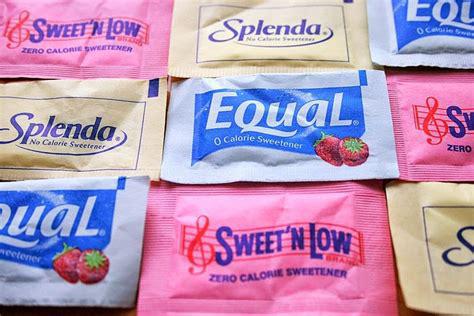
In the same way as in 2011, the same research group has now put a focus on a non-nutrient sweetener (AKA artifical sweetener) called erythritol, a polyol chemical, widely used in the food industry, particularly many “keto” processed foods like cookies and ice creams.
This new research project and paper, just published, caused a tidal wave of media reports and is certainly going to follow the pattern of TMAO and lead to hundreds of research efforts and new understanding of how heart attacks and other serious disease conditions occur. While there is much to learn, I predict we will be drawing blood erythritol levels soon and new agents to treat heart disease will be developed that hopefully will further lower heart disease risks.
STUDY DETAILS
The scientists examined the commonly used sugar substitute erythritol and atherothrombotic disease risk. In initial untargeted metabolomics studies in patients undergoing cardiac risk assessment (n = 1,157; discovery cohort) circulating levels of multiple polyol sweeteners, especially erythritol, were associated with 3 year risk for major adverse cardiovascular events (MACE; includes death or nonfatal myocardial infarction or stroke).
Subsequent targeted metabolomics analyses in independent US (n = 2,149) and European (n = 833) validation cohorts of stable patients undergoing elective cardiac evaluation confirmed this association and the risk associated with blood erythritol levels.
To test a possible pathway bu which this sweetener might be associated with cardiac events, studies were done at the benchtop and at physiological levels, erythritol enhanced platelet reactivity in vitro and thrombosis formation in vivo.
Finally, in a prospective pilot intervention study, erythritol ingestion in healthy volunteers (n = 8) induced marked and sustained (>2 d) increases in plasma erythritol levels well above thresholds associated with heightened platelet reactivity and thrombosis potential in in vitro and in vivo studies.
AUTHOR CONCLUSIONS
The scientists indicated that tese findings reveal that erythritol is both associated with incident MACE risk and fosters enhanced clotting by making platelets more likely to clump. Studies assessing the long-term safety of erythritol are warranted.
The authors note the importance of follow-up studies to confirm their findings in the general population. The study had several limitations, including that clinical observation studies demonstrate association and not causation.
“Our study shows that when participants consumed an artificially sweetened beverage with an amount of erythritol found in many processed foods, markedly elevated levels in the blood are observed for days – levels well above those observed to enhance clotting risks,” said Dr. Hazen. “It is important that further safety studies are conducted to examine the long-term effects of artificial sweeteners in general, and erythritol specifically, on risks for heart attack and stroke, particularly in people at higher risk for cardiovascular disease.”
In the meantime, I would recommend avoiding food products high in erythritol such as ice creams and cookies, of no nutritional value anyways. Eat an apple, grab a banana, enjoy a whole grain cracker, and wait for the next flood of studies on this topic. It is an exciting advance with much more to learn.

